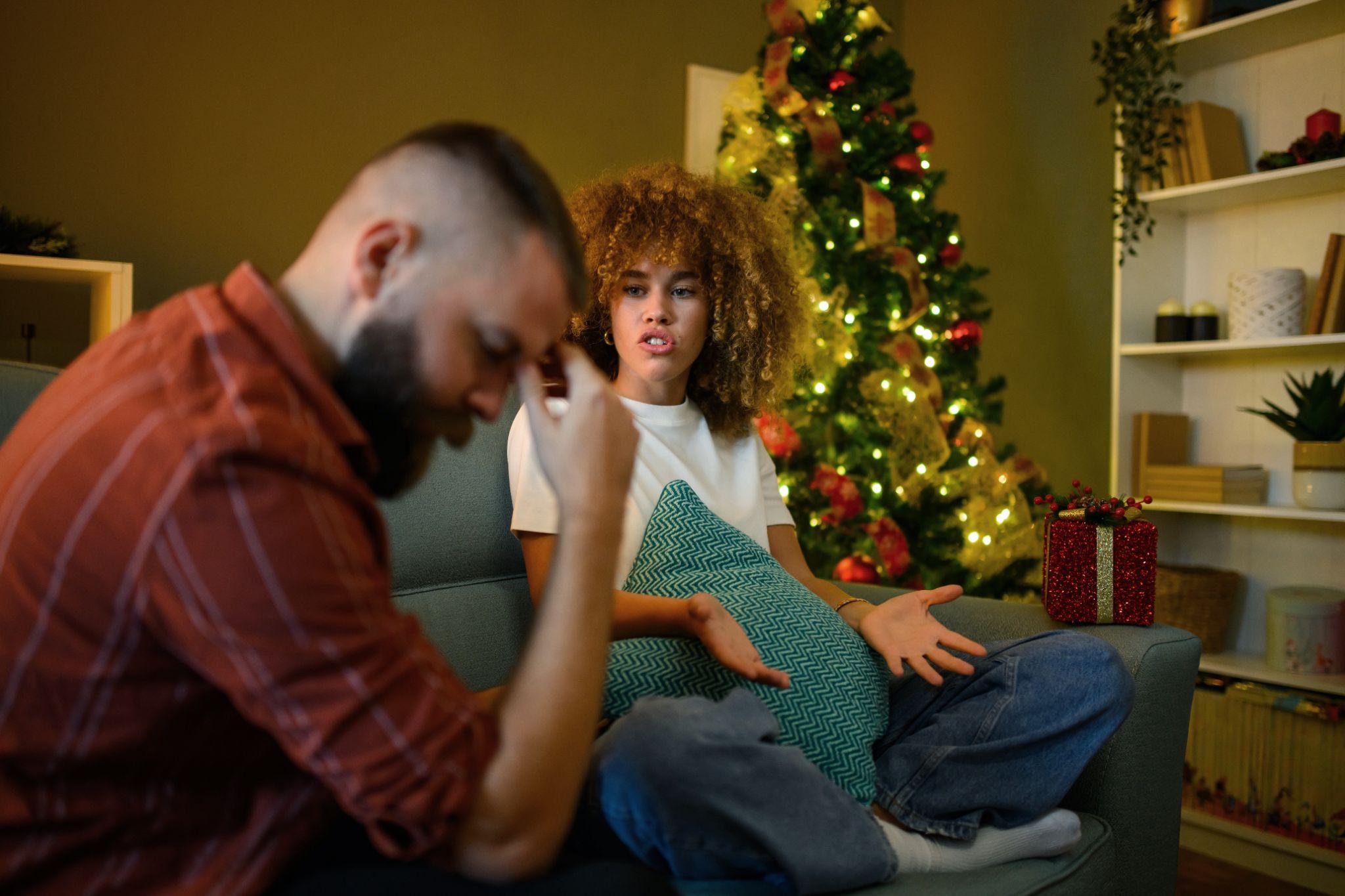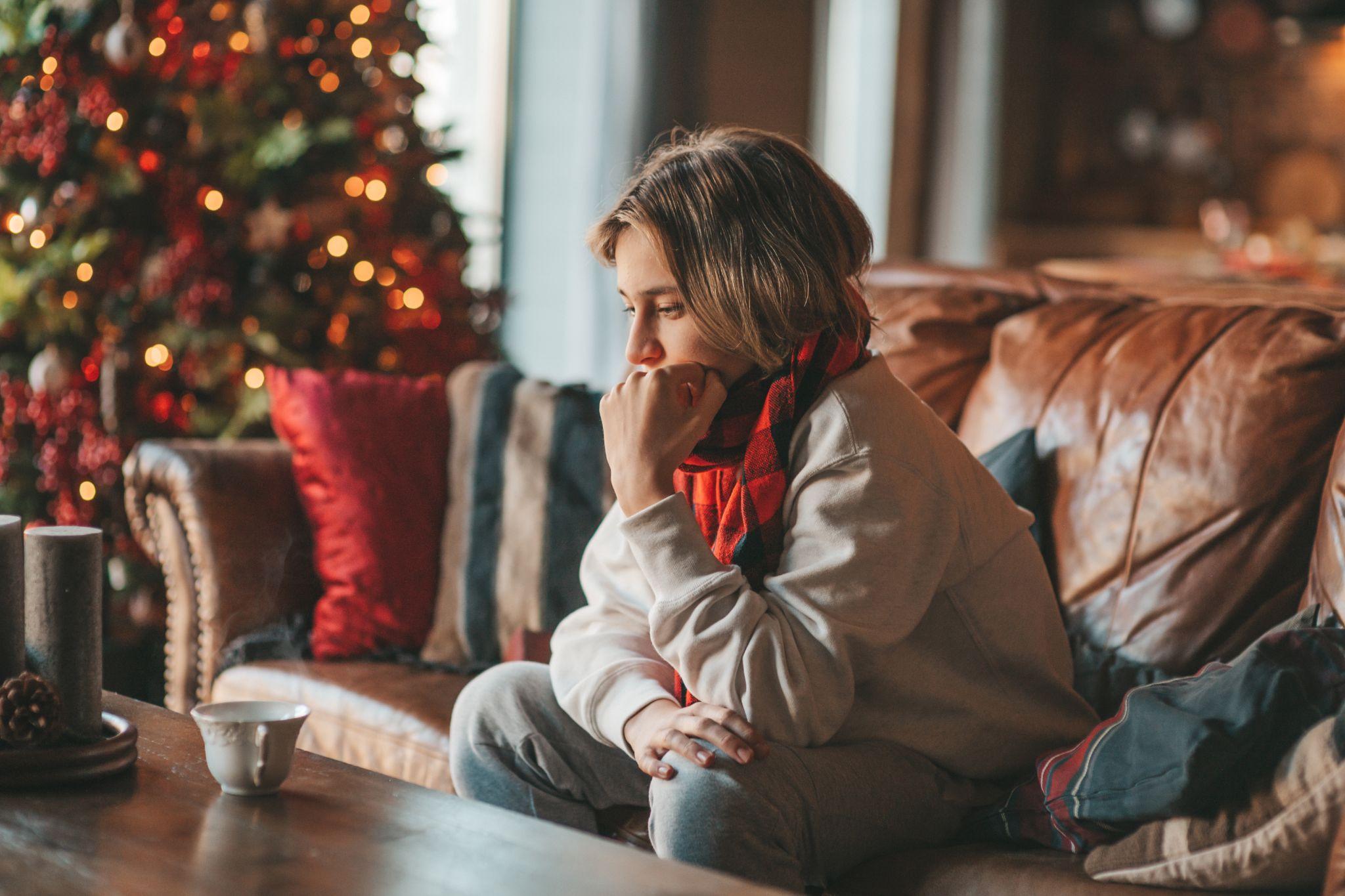The holiday season is a time of joy, connection, and celebration, but for individuals in recovery, addiction and the holidays can create a difficult combination. Family gatherings, changes in routine, and an abundance of social events where alcohol and other substances are present can make staying sober more challenging.
Understanding the common relapse triggers and having strategies to manage them can help you or your loved one maintain sobriety during the holidays.
Here are some of the most common holiday relapse triggers and suggestions on how to cope with them.
Social Pressure to Drink or Use Substances
Social gatherings during the holiday season often revolve around alcohol or other substances, making them a common alcohol relapse trigger for those in recovery.
Whether it’s a festive family dinner, a workplace celebration, or a New Year’s Eve party, there’s a high likelihood that people will be drinking or using substances. This can create a challenging environment where it’s easy to feel left out or pressured to join in.
The key to handling social pressure is preparation. Plan ahead by bringing your own non-alcoholic drinks or themed mocktails, so you can blend in without feeling uncomfortable. If you’re worried about questions or comments, have a simple explanation prepared, like “I’m not drinking tonight” or “I’m focusing on my health.” If you’re at an event and start to feel uneasy, it’s okay to leave early.
Family Conflict and Stress
For many, family relationships can be a source of both comfort and stress, especially during the holidays. Old family dynamics, unresolved conflicts, and emotionally charged interactions can quickly escalate and create stress, leading to powerful urges to relapse as a way to cope. Even positive family relationships may sometimes become overwhelming during this time of year.
To minimize the stress of family gatherings, establish clear boundaries before the event. Let family members know what topics of conversation are off-limits, and be prepared to walk away if tensions rise.
You don’t have to engage in every discussion, especially if it involves triggering topics. Practicing mindfulness or grounding exercises can help you stay calm in the moment, while breathing techniques can reduce immediate stress.
Loneliness and Isolation
Not everyone has a large or supportive family to spend the holidays with, and feelings of loneliness and isolation can be particularly intense during this season. Seeing others enjoy time with loved ones may make you feel disconnected, which can be a powerful trigger for relapse, especially if using substances was once a way to cope with loneliness.
One of the best ways to combat loneliness during the holidays is by staying connected with your recovery community. Many support groups, including Alcoholics Anonymous (AA) and Narcotics Anonymous (NA), host additional meetings during the holidays to provide extra support.
Attending these meetings or reaching out to fellow group members can help you stay engaged and remind you that you’re not alone.
Financial Stress
The holidays can be an expensive time of year. Between buying gifts, traveling, and hosting celebrations, financial stress is a common issue that can lead to anxiety and potential relapse. Worrying about money might trigger old habits of using substances to escape feelings of overwhelm or inadequacy.
To manage financial stress, create a realistic budget for the holiday season. Remember that you don’t need to spend a lot of money to show appreciation for your loved ones. Homemade gifts, personalized cards, or simply spending quality time together can be just as meaningful as store-bought presents.
It’s also important to communicate with your family and friends if you’re unable to participate in expensive traditions. Most people will understand and appreciate your honesty.
Disruption of Routine
During the holiday season, your normal daily routine can be disrupted by travel, family visits, and social obligations. The lack of structure during the holiday season can lead to feelings of instability or chaos, making it harder to stay focused on recovery.
Regular routines, such as attending therapy sessions, going to recovery meetings, or practicing self-care, might not happen during the holidays, leading to increased vulnerability to relapse.
Even during the busy holiday season, try to maintain as much of your routine as possible. If you normally attend a support group meeting on a certain day, make it a priority, even if it means finding a meeting in a different location or attending virtually.
Plan out your schedule in advance so you know when and where you’ll be participating in recovery activities. Maintaining healthy habits like exercising, eating well, and getting enough sleep can also help you feel more grounded during this chaotic time.
Overconfidence in Recovery
Feeling confident in your recovery progress is a good thing, but overconfidence can sometimes lead to risky behavior. During the holiday season, this might mean attending parties where substances are present, thinking that you can handle being around them without temptation.
Overconfidence can also cause some people to stop attending support groups or neglect other recovery practices, believing they no longer need them.
While it’s wonderful to feel strong in your recovery, it’s important to stay humble and recognize that recovery is a lifelong process. Remind yourself that triggers can appear when you least expect them and maintaining healthy boundaries is essential for long-term sobriety. Keep attending support group meetings or talking to a sponsor regularly, even if you feel like you’re doing well.
Negative Emotions and Seasonal Affective Disorder (SAD)
The holiday season occurs during a time of year when shorter days and colder weather can lead to seasonal affective disorder (SAD) or feelings of sadness and depression. For those already managing mental health challenges, these seasonal factors can exacerbate negative emotions, increasing the temptation to relapse.
If you know you are prone to SAD or feelings of depression during the winter months, take proactive steps to care for your mental health. Light therapy, getting outside in natural daylight, and staying physically active are all proven methods for combating SAD.
Practicing mindfulness or engaging in creative activities like journaling, drawing, or music can help lift your mood. Understanding how to avoid relapse triggers related to emotional health is crucial for maintaining sobriety during this challenging season.
Find Strength and Avoid Relapse During the Holidays With Lumina Recovery
Relapsing during the holiday season can feel discouraging, but it’s important to remember that relapse is often part of the recovery journey. If you or a loved one experiences a relapse, don’t lose hope. Reach out for support immediately, whether that’s through a counselor, sponsor, or rehab facility.
At Lumina Recovery, we understand the challenges of maintaining sobriety during the holidays, and we’re here to help. If you’ve relapsed or are worried about holiday relapse triggers, our compassionate team offers evidence-based treatment plans that include coping strategies for triggers for relapse and ongoing support to get you back on the path to recovery.
If you’ve relapsed or are struggling with sobriety this holiday season, contact us today to get the support you need.



